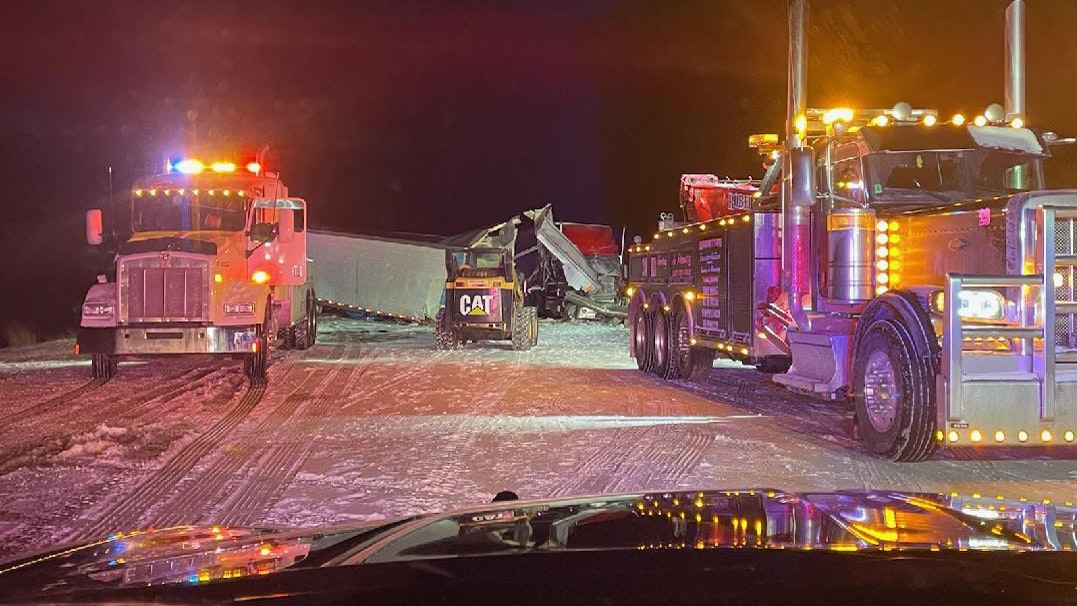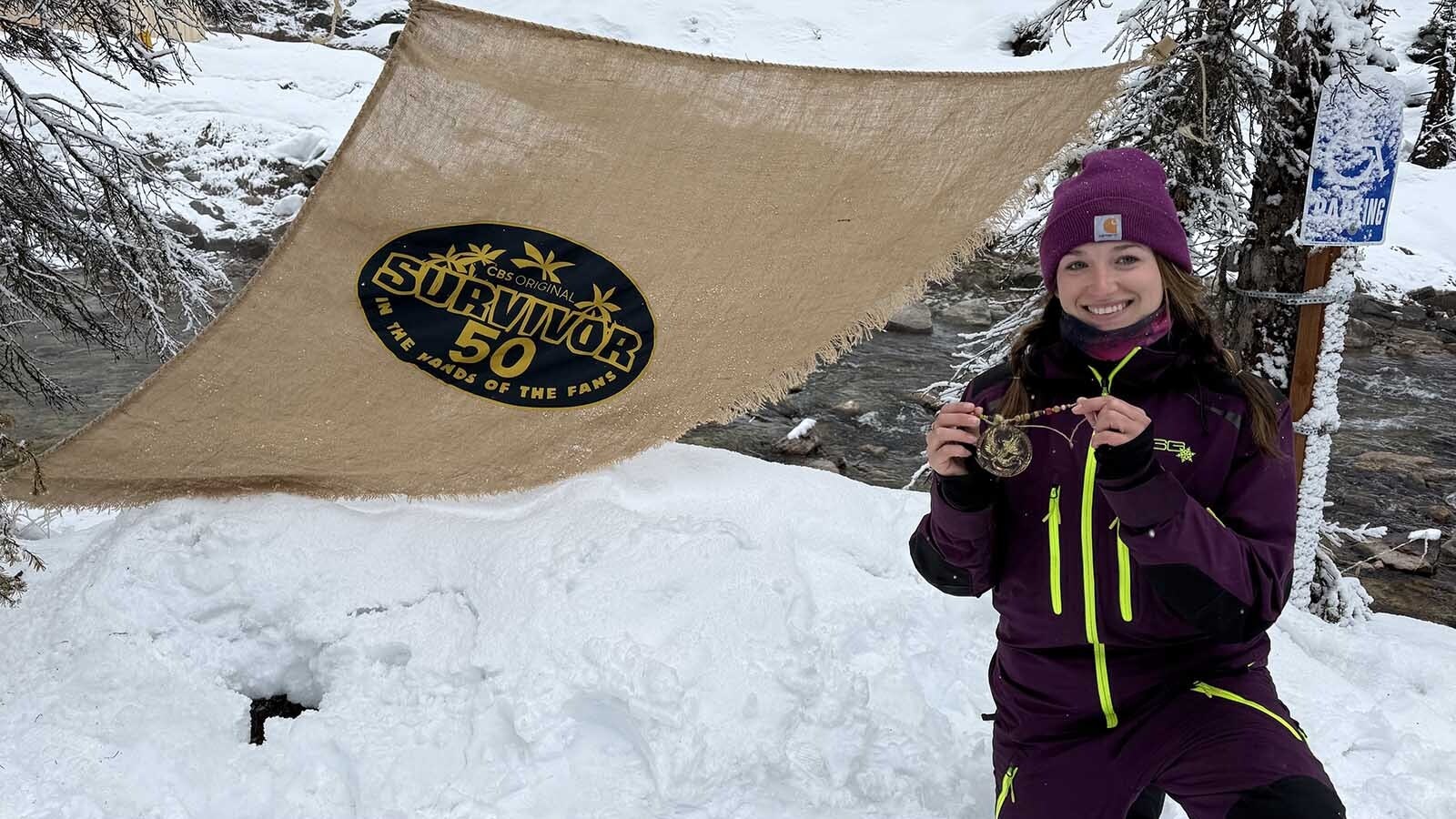BUFFALO — George Clark might get around in the world with a wheelchair, but just tell him he can’t do something and watch what happens.
“I’m Scotch-Irish,” Clark told Cowboy State Daily. “I’m very stubborn. If someone tells me I can’t do something, I’m going to do it.”
That’s how Clark, who has been in a wheelchair for about 14 years, happens to have a spunky little custom sheep wagon-making business in the Bighorn Mountains near Buffalo. It’s cranking out lots of dreamy throwback mobile tiny homes for the Wyoming prairie, as well as restoring older, historic sheep wagons to their former glory.
Clark has 13 wagons he’s working on now, and contracts for six more coming in from people who have discovered his shop.
Each wagon is a custom job, with whatever bells and whistles a particular customer wants. In fact, Clark considers figuring out how to engineer oddball requests his particular specialty.
“If you can think about something, we can do it,” Clark said. “I can’t quit thinking about things to build. That’s just how it works here.”
Welcome To The Wagon Yard
Clark has several wagons sitting in the backyard of his home, which looks out on the Bighorn Mountains, in various stages of completion.
“Anything you see rotten, we rebuild,” Clark said. “So, the brake system on this one is getting rebuilt, and the wheels are in the beginning stages.”
He also has plank after plank of lodgepole pine drying in a kiln he’s built toward the back of his wagon yard. That’s powered with a solar panel that Clark rigged up himself.
The dried planks are used to build custom features for his sheep wagons, like the pull-out table that’s generally always placed underneath the bed in the back of a sheep wagon.
He can also build custom boxes to hold rice, sugar and beans, as he is doing for one of his Amish friends, or for custom cabinetry. Not to mention the Basque-inspired mirrors that he places in each sheep wagon.
That’s included as a personal gift in the sheep wagons to thank customers for their business, Clark said.
All of the sheep wagons use sailboat canvas for the outer shell, the toughest natural breathable canvas he’s found. He’s also lately figured out how to construct an interior shell that includes insulation for those who need their wagons year-round.
Where The Magic Happens
The garage is where Clark has put his shop for the sheep wagon of the moment.
It’s not just a practical workspace, though. It’s a home for the spirit.
He has his own “wall of fame” with mementos passed down from family members that remind him not only who he is, but where he came from.
For example, there’s a hook hanging from a plaque crafted by one of his grandfathers in 1916. There’s a harness from another grandfather, as well as a hammer that gets used every day. There’s even an anvil from one of his grandfathers, set up on wheels so Clark can easily move it around wherever he needs it to go.
A ramp inside the garage leads to a platform that is just right for him to wheel himself inside a sheepwagon to work on its interior.
The platform even has “bumpers” on it, Clark said, at the insistence of his father.
“He said, ‘You gotta quit this. You’re gonna run off the edge,’” Clark recalled. “You don’t have any bumpers.”
At first Clark said he thought, so what?
“We rodeoed all of our lives, we got bucked off and stuff all the time,” Clark said.
But eventually he saw the wisdom of bumpers and added them.
“So I didn’t get chewed out any more,” he said.
An Accessible Sheep Wagon
The wagon now in the garage’s shop space is for a personal challenge. About 10 years ago, someone asked Clark how he liked sleeping in his sheep wagons.
But he hasn’t actually ever slept in one — yet.
He soon decided that one day he’d build a sheep wagon big enough for a wheelchair, one where he can turn around and sleep on the bed if he wishes — on a king-size bed, no less.
His first challenge was figuring out how to electrify the wagon for anywhere he might take it to get his wheelchair up onto a platform and then into the wagon.
Technology had to advance a bit, and now it’s helping him with that little problem. Two solar panels, one on each side of the wagon, capture the sun to charge up a couple of batteries.
Given that there’s electricity, he’s also added a bladder for water and a small hot water heater so he can have running hot water for an outdoor shower setup, as well as a small refrigerator and a small sink to wash up.
There are two boxes inside the sheep wagon for seating, which double as a wood box. Those can be filled from the outside.
“For me, I’m not going to carry the wood up and do all that,” he said. “This way, I’m able to put the wood into the box from outside.”
‘I’m In A Wheelchair, Not Dead’
Clark’s business started because of old running gear sitting around in the garage that he had once used for draft horses. It was leftover from the ranch he’d owned before he was forced to sell out by an oil field accident.
People, his dad included, kept asking him, “What are you going to do with that?”
One day he popped off with, “I’m going to build a sheep wagon on it.”
His dad scoffed at the idea.
“You can’t do that,” he said. “You’re in a wheelchair.”
Well, that made the outcome a certainty in Clark’s mind. There would be a sheep wagon on that running gear one way or another.
“I’m in a wheelchair, dad. Not dead,” he told his father.
It took some time, and a little help from his wife Lori and a lifelong Amish friend he went to school with growing up. They helped him paint any areas he couldn’t reach, as well as certain other tasks that were physically difficult for him to accomplish.
Clark did all of the engineering and design work, though, as well as a lot of the custom woodworking.
“My granadfather was a cabinetmaker,” Clark said. “And my other grandfather was a logger and lumber man. I have a walnut desk here where one grandfather cut the walnut and the other made the desk.”
Clark’s first sheepwagon looked a bit like a cedar tiny home on wheels. Clark had a quilt custom-made for the wagon, too, the perfect finishing touch for the homespun look of the rustic cabin.
It was cool enough that other people who saw the sheepwagon wanted one, too.
Before Clark knew it, he had a real business on his hands.
When Stubborness Is An Asset
Clark has been Scotch-Irish stubborn all his life.
That might have frustrated family members from time to time, but ultimately it helped him get through the oil field accident that left him without the use of his legs.
That’s not something Clark likes to talk about. It’s a time in his life when he did a little of what he calls “faltering.”
Faltering, for most of us, is what happens in the morning when ambition hasn’t woken up yet and we hit the snooze button one too many times.
But for Clark, at that time, the faltering was about waking up to life itself.
He’d been forced to sell out of ranching, a profession that had once meant everything to him. He’d worked an oil field job just to make ends meet. Ranching was what he really loved.
His father had cautioned him about trying to continue ranching.
“You just can’t do this anymore,” his father told him at the time. “You’re going to get hurt worse. And don’t you ever even try and get back on a horse.”
Clark knew his father was right, even if he didn’t want to admit it.
“You have bad cows, and they don’t give a shit if you’re in a wheelchair or not,” Clark said. “They’ll run over you and do whatever else they have to do.”
Selling his ranch out was among the hardest days of his life.
But his dad also helped him flip the script that was playing in his head about that.
“So, my dad goes, ‘Being in that wheelchair is not the worst thing that could happen to you,’” Clark recalled. “And I’m thinking, ‘Oh, hell no. the shit’s going to hit the fan here. I’ve just had enough,’ and I told him so.”
His dad shook his head.
“You don’t understand,” Clark recalled him saying. “It’s not the worst thing that can happen to you. You could have been looking up at that grass instead of looking down at it.”
That’s how close Clark had been between life and death. He realized it was time to focus on what he had, not on what he had not.
“So, I just turned my whole life around,” Clark said. “I said, ‘You know what, I’m going to do whatever I want to do. I’m going to figure out how to do it.’”
That’s something Clark is still figuring out every day in his little garage where new sheep wagon dreams are born every day in the Bighorn Mountains.
“I don’t know how to do everything I want to do yet,” he said. “I don’t. But I’m going to figure it out. And every day I come through the garage door right there, in here, that’s my therapy.”
Renée Jean can be reached at renee@cowboystatedaily.com.


























